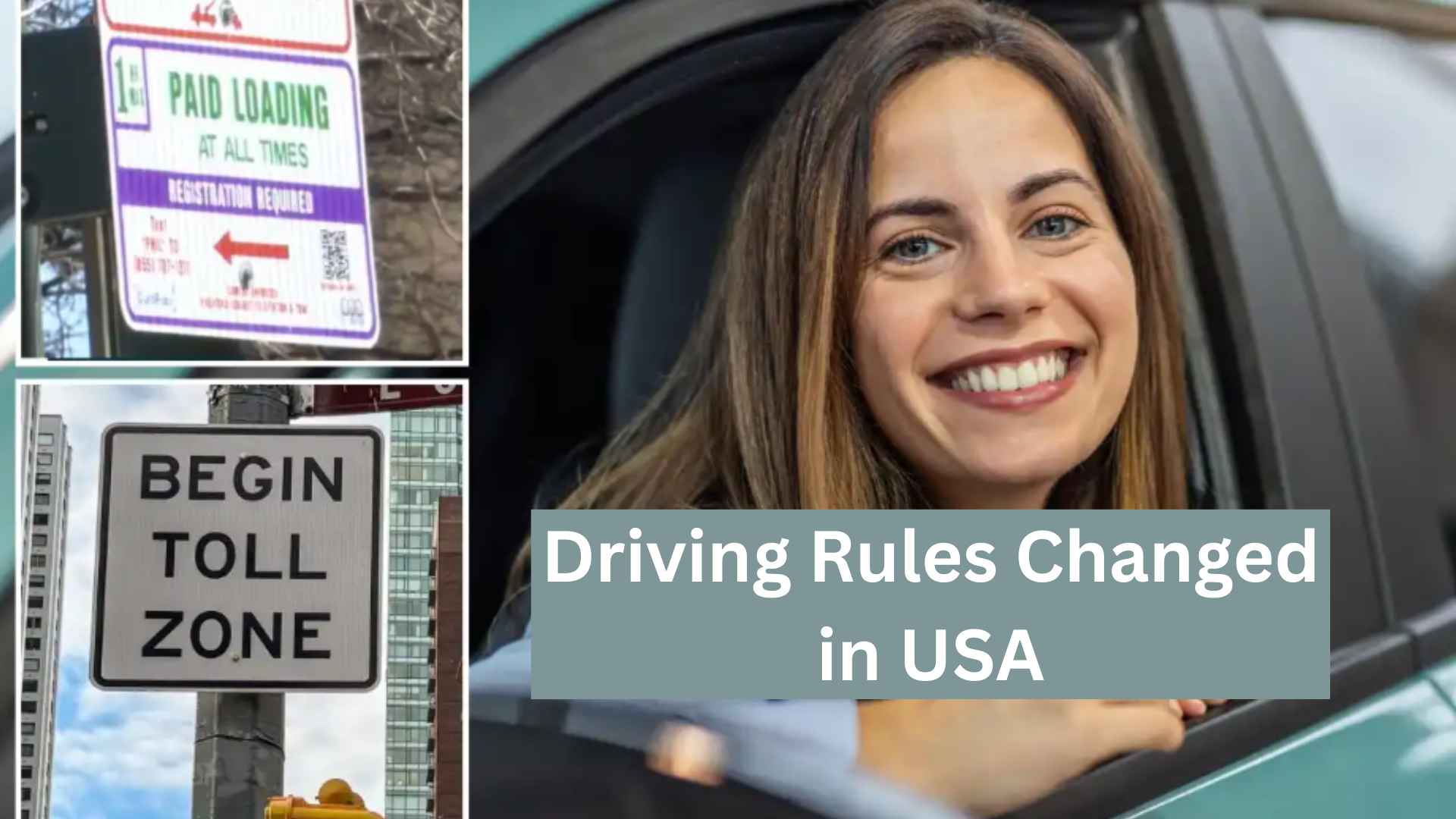Several U.S. states have implemented new driving laws this year, and failing to stay updated could result in unexpected penalties. Here’s what drivers need to know in 2025 as the Driving Rules Changed in the USA; read this post and find out the updated laws.
Driving Rules Changed in USA
In 2025, multiple states across the United States have introduced significant changes to their driving laws, impacting everything from mobile phone use to emissions compliance and speed limits. These laws aim to improve public safety, address environmental concerns, and modernize road transport regulations.
While some updates are local, others are being adopted more widely. Whether you’re a daily commuter, professional driver, or casual motorist, knowing these new rules can help you avoid costly fines and unnecessary legal issues.
Stricter Mobile Phone and Dashboard Use Laws
Several states, including California, New York, and Texas, have expanded their distracted driving laws.

Under these new rules:
- Holding a phone while driving is strictly prohibited, even at stoplights.
- Dashboard touch interactions (e.g., for music or maps) are limited to one swipe or tap.
- First-time violators may face fines up to $250, while repeat offences can result in license points and higher insurance premiums.
Hands-free systems are still allowed, but drivers are expected to program GPS or set music before starting their journey.
Updated Emissions and Vehicle Inspection Standards
Environmental updates have arrived in states like Oregon, Washington, and Colorado. These include:
- Tighter emissions thresholds for diesel and gas vehicles.
- Mandatory annual emissions testing for all vehicles older than five years.
- Introduction of zero-emission vehicle zones in parts of major cities (e.g., Portland and Denver).
Electric and hybrid vehicles may qualify for exemptions, while older cars must meet stricter limits or face penalties ranging from $200–$1,000 depending on the violation.
Speed Limit Changes and Automated Enforcement
Some states have revised their urban and highway speed limits:
| State | Old Speed Limit | New Speed Limit |
|---|---|---|
| Illinois (urban zones) | 30 mph | 25 mph |
| Nevada (rural highways) | 70 mph | 75 mph |
| Massachusetts (residential) | 35 mph | 30 mph |
Additionally, automated speed enforcement cameras are now operational in more cities, including Boston, San Diego, and Houston. Speeding tickets issued via camera do not require officer stops and are mailed directly to the vehicle owner.
New Teen Driving and Permit Laws
In response to rising teen-related road incidents, states like Florida and Ohio have updated licensing laws for new drivers:
- Extended learner permit period from 6 months to 12 months.
- Mandatory completion of defensive driving courses before full license issuance.
- Night driving curfews between 11 PM and 5 AM for drivers under 18.
These steps aim to improve driving habits early and reduce the number of accidents involving young motorists.
Electric Vehicle (EV) Lane Regulations Introduced
As EV adoption grows, some states have introduced exclusive EV lanes and toll exemptions:
- California and Arizona now allow EV-only express lanes during rush hour.
- Charging station priority access laws have been enacted, with fines for non-EVs parked in EV slots reaching up to $500.
These changes are designed to incentivize clean transportation while addressing congestion.
How Drivers Can Stay Compliant
To avoid penalties and stay safe on the road, all drivers should:
- Check your state DMV website for specific updates based on your location.
- Update your vehicle inspection and emissions certificates before due dates.
- Avoid using mobile devices unless completely hands-free.
- Keep updated insurance records and valid licenses at all times.
Drivers should also take advantage of state-offered online refresher courses, especially if new laws affect their daily routes.
With traffic laws evolving rapidly in 2025, staying informed isn’t just a good habit — it’s essential for protecting your license, your wallet, and your safety on the road.